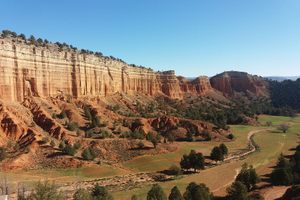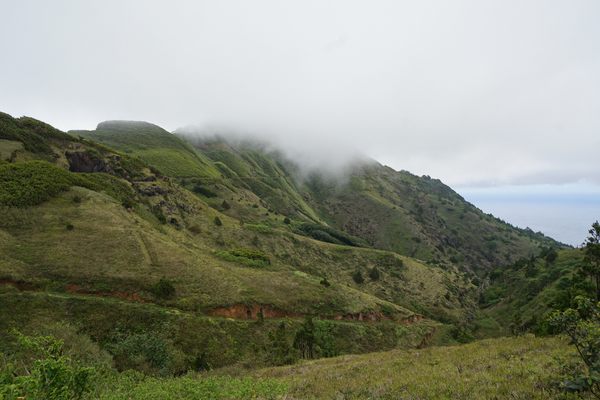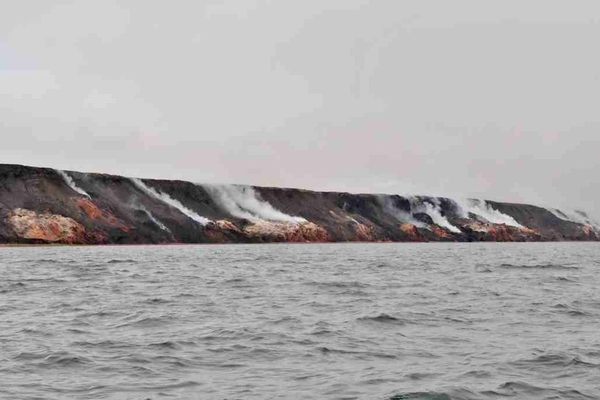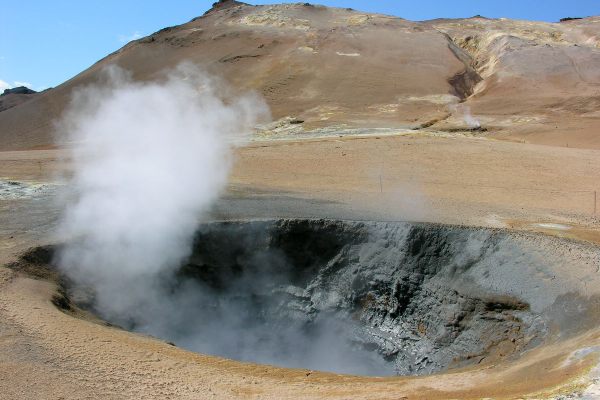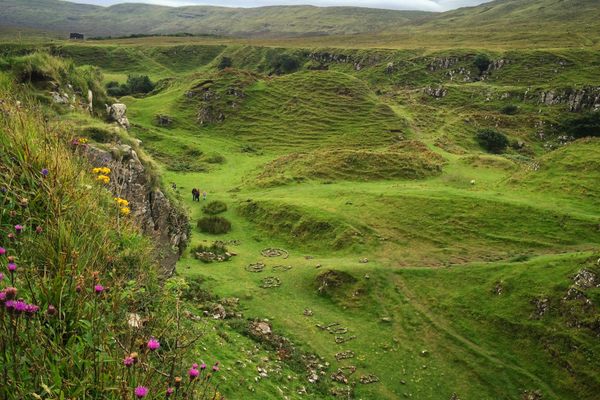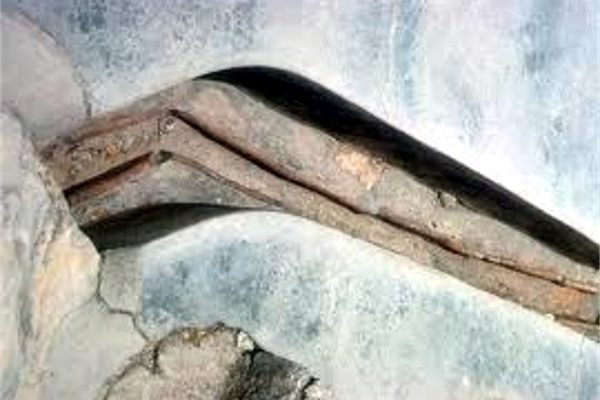About
The Bullring. It's a term that conjures images of sunbaked sandstone coliseums, dusty and caked with dirt, sweat and blood rising from the earthen floor, echoing with the thunderous cheers of the fans who line its steep rows of seats.
Looking out at the jagged scoop of red earth and rock that form the walls of the Canyon of Talayuelas, it's no wonder that the locals call it La Plaza de Toros, or The Bull Ring. The forces of wind and rain have eroded an eye-catching bowl of iron-rich rock resembling the shape and color of a bull ring, and while visitors find more desolation than they do violence, and it's more likely to hear the haunting whistle of an empty wind than the cheering of a crowd, it's not hard to imagine legions of awestruck tourists lining the rim and applauding, if they all happened to show up at once.
Stuck away near the tiny town of Talayuelas, with a population of less than 2,000 people, the canyon is relatively remote and unmarked, even by the natural wonder standards, but it's certainly unique. Hardy pines and tall trees speckle the rock walls, invading from the thick surrounding forests and giving them the prickly appearance of a patch of skin two weeks removed from a wax. The climate in Talayuelas is just right for allowing the growth of vegetation where usually there would be none, even in the hard and arid rock. Compared to the Grand Canyon, for example, El Cañon de Talayuelas is lush.
It's far removed from any bulls, let alone a bullfighting ring, but it's a prime example of how nature is able to put on its own show, regardless of whether or not civilization tries to be a part of it.
Related Tags
Know Before You Go
Is located 5 km away from Talayuelas
Published
June 17, 2012















